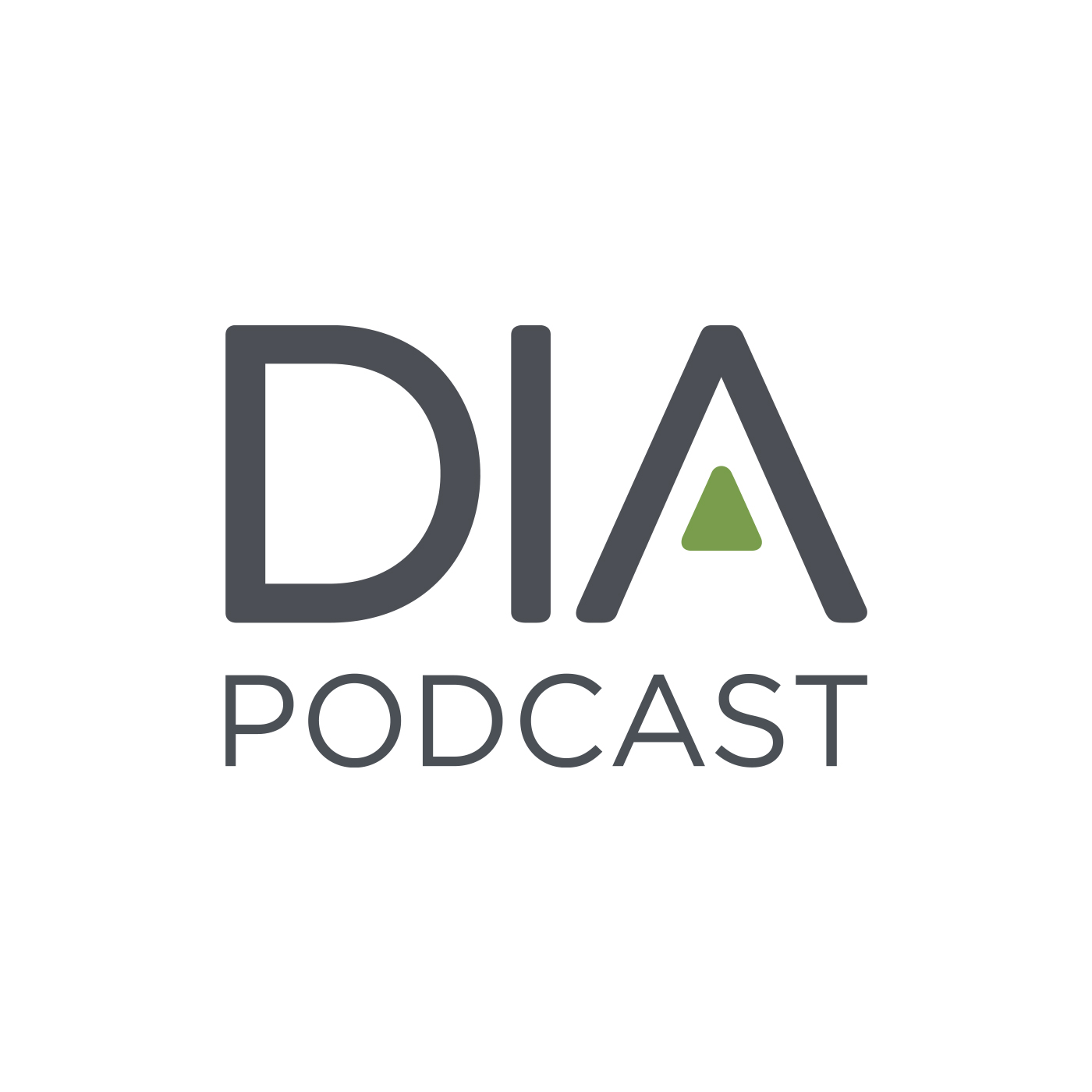
92.7K
Downloads
254
Episodes
DIA is a global, multidisciplinary, membership association of healthcare professionals that works towards the advancement of lifesaving medicines, therapies, and technologies around the world.
DIA is a global, multidisciplinary, membership association of healthcare professionals that works towards the advancement of lifesaving medicines, therapies, and technologies around the world.
Episodes

Monday Nov 22, 2021
Three Good Reasons to Use Artificial Intelligence in Pharmacovigilance
Monday Nov 22, 2021
Monday Nov 22, 2021
“There are good reasons to explore the use of artificial intelligence in pharmacovigilance. There are an increasing number of sources of drug safety information, and efficient screening, processing, or evaluation of them would benefit from accurate automated methods,” explains Gerald Dal Pan, Director, Office of Surveillance and Epidemiology (OSE), CDER. “First, there’s the potential application of AI to the processing of case reports. Second, there’s the potential application of AI for assessing causality in a case report. Third, we’re exploring the use of AI in real-world data as part of the Sentinel Initiative.”

Wednesday Oct 13, 2021
EU Regulatory Strategies Shaping and Shaped by Pandemic Response
Wednesday Oct 13, 2021
Wednesday Oct 13, 2021
COVID has demonstrated the importance of regulatory systems that ensure the safety and efficacy of therapeutic products as well as patient access to these products, especially in the complex network of healthcare, scientific, pharmaceutical, regulatory, and patient communities in Europe. “Regulators and industry have worked day and night over the last two years to bring vaccines and therapies forward. We know very clearly that sustainability of the system is an issue. More regulatory resources and simpler processes are desperately needed,” explains Isabelle Stoeckert, Bayer AG vice president and head of regulatory affairs for Europe, Middle East, and Africa. “Many countries have learned that reliance and collaboration between regulators is a really good thing. COVID-19 has really shown that,” suggests Henrik Nielsen, Novo Nordisk vice president of global regulatory sciences. “And I think this will stay, so we will see more reliance between regulatory sources, and we'll probably see increased use of different collaboration schemes around the world.”

Monday Sep 27, 2021
Telehealth Emerging in Japan’s Clinical Research and Care
Monday Sep 27, 2021
Monday Sep 27, 2021
How are clinical research and clinical care industries in Japan responding to the new challenges emerging in the post-pandemic world? “During 2020, it became a very difficult time to initiate a clinical trial, a difficult time to recruit patients to clinical trials which were ongoing, especially if those were clinical trials in patients who were elderly or in cancer therapies. Patients were a little bit reluctant to go to hospitals, even though we had very few cases in Japan,” explains E. Stewart Geary, global safety officer and senior vice president, Eisai Company Limited. “The healthcare system in Japan has one big challenge in that a lot of people are concentrated in large cities, and that's also where healthcare professionals are concentrated. But you have a large elderly population which is still in the countryside in towns which are kind of dying off, are very small, and are probably underserved by healthcare professionals. Because of that, there had been ongoing debate about telehealth.”

Wednesday Sep 15, 2021
Aligned Review Timelines Key to Co-Developing Companion Diagnostics
Wednesday Sep 15, 2021
Wednesday Sep 15, 2021
“We're moving toward an era of truly personalized medicine where research is uncovering the genetic basis for disease as well as mutations and biomarkers that can be targeted with drug and biologic therapies. We need to continue to identify the right patients for these innovative therapies, and this is where companion diagnostics has a foothold,” explains Tiffany Levin (55th Parallel). “One of the key challenges for drug sponsors is the timing of the development and review of companion diagnostics when they're intended to accompany an accelerated therapeutic development program,” continues Megan Doyle (Amgen). “We know regulators have developed or are developing accelerated regulatory pathways for drugs that are intended to address areas of high unmet need. But we don't have a similar accelerated pathway in most jurisdictions for the companion diagnostic.”

Wednesday Aug 25, 2021
Early Access Programs Complicating Comparative Data Analyses
Wednesday Aug 25, 2021
Wednesday Aug 25, 2021
The Pharmaceutical Benefits Advisory Committee (PBAC) is an independent expert body appointed by the Australian Government to recommend new medicines for listing on the Pharmaceutical Benefits Scheme. How have advanced therapies impacted the cost and cost effectiveness of pharmaceuticals, and the work of PBAC, in Australia? “Our decision making is becoming harder because we're being asked to make decisions with substantially more uncertainty about the benefits and safety and the value propositions because medicines are coming to market earlier,” explains PBAC Chair Andrew Wilson to Ric Day, Global Forum Regional Editor, Australia/New Zealand. “I don't think the quality of the information has fallen. It's just that we're seeing it earlier in the drug development program process to be considered, and so there is more uncertainty associated with it.”

Wednesday Aug 04, 2021
New PAHO Report: Strength in Regulatory Reference and Reliance
Wednesday Aug 04, 2021
Wednesday Aug 04, 2021
In April 2021, the Pan American Health Organization (PAHO) issued Regulatory System Strengthening in the Americas: Lessons Learned from the National Regulatory Authorities of Regional Reference to overview the Americas’ regulatory landscape and regulatory responses to COVID-19. “The pandemic has highlighted the crucial role that the national regulatory authorities need to play in a public health emergency,” explains PAHO Assistant Director Jarbas Barbosa to Cammilla Gomes, regulatory policy lead for Latin America, Roche, and DIA Global Forum regional editor for Latin America. “The regional pharmaceutical market is growing, products are becoming more complex, and countries are spending more in providing access to these products. Yet the resources and capacities are not growing at the same pace in most regulatory authorities, and we want to ensure that our countries are able to oversee and enforce the regulations to ensure the safety, effectiveness, and quality of all products.”

Monday Aug 02, 2021
eLabeling More than Moving from Paper to Digital
Monday Aug 02, 2021
Monday Aug 02, 2021
Electronic or digital documents helped manage and disseminate clinical research data and information during the pandemic and are now being explored for potential use at the other end of this pipeline: the product safety and other information in the (paper) package insert. “Whether we are speaking of paper or electronic formats, this is the basic right, at the end of the day, for patients: to allow them that access and informed decision making about the use of their product,” suggests Aimad Torqui, executive director, Global Regulatory Policy, MSD (The Netherlands), and chair, Product Information Inter-Association Task Force (PI IATF). “It sounds very easy to move from one format to another. But there’s a lot of details to go through: How do we do submissions? How do we do approvals? Where is it published? How do people get access to it?”

Thursday Jun 17, 2021
RIM Whitepaper V2 and RIM Reference Model: Advancing Regulatory Science
Thursday Jun 17, 2021
Thursday Jun 17, 2021
In April 2021, the Regulatory Information Management (RIM) Working Group of DIA’s Regulatory Affairs Community issued Version 2.0 of the RIM Whitepaper that provides insights relating to eleven key regulatory capability areas including RIM implementation considerations, processes, and best practices. The Whitepaper also provides context for the RIM Reference Model in development. “One of the key aspects of the model is standardizing terminology and relationships between information,” explains IQVIA Senior Regulatory Affairs Director Donald Palmer in this conversation moderated by Ennov Director of Product Management Kathie Clark. “It puts the stake in the ground in terms of the basic data elements required to support regulatory in its business process and also other functional areas which depend on regulatory,” continues Venkatraman Balasubramanian, Senior Vice President, Life Sciences, Orion Innovation. “If we can put the best practices out there, we all align on the hope that this will allow industry to bring life-saving or life-improving medications and therapies to patients faster. We're hoping to make a big difference,” concludes Pat Shafer, Managing Director, FTI Consulting. Download Version 2.0 of the RIM Whitepaper.

Tuesday May 11, 2021
Australia: Growing Clinical Trials Even in Pandemic’s Wake
Tuesday May 11, 2021
Tuesday May 11, 2021
DIA Global Forum Australia/New Zealand Regional Editor Richard Day (University of New South Wales, Medicine, St. Vincent’s Hospital) and John Skeritt, Head of Australia’s Therapeutic Goods Administration (TGA), discuss regulatory strategies and other initiatives designed to help nurture clinical research and product development in Australia post-pandemic. With “Australia having had many fewer cases than comparable countries, we've actually become in very short time a very attractive global destination for clinical trials. And, in fact, because of our low numbers, the demand has significantly increased,” John explains. “For medicines, biologicals, and devices, for example, in the last six months of last year, July to December 2020, we actually had a 17% increase in the number of clinical trials, even though COVID was rife in some parts of Australia at that time.”

Monday Apr 26, 2021
Remote Tools Keep Japan's Research Moving
Monday Apr 26, 2021
Monday Apr 26, 2021
Japan, the world’s third largest pharmaceutical market, has long been engaged in clinical research in every therapeutic area. “COVID-19 totally changed the world. The remote connection is the only way for the CRAs and the sites to communicate and work together, so both the sponsors and the sites started using remote communication or remote monitoring gradually,” explains Eri Sekine, Region Head of Trial Monitoring Japan, Global Development Operations, Novartis Pharma KK, Japan. “So now it's the time to consider how to utilize modern technologies in clinical trials. I think, based on our experience, that people will start thinking more aggressively about digitalization, digital solutions, to make clinical trials easier for sites, sponsors, and for patients.”
